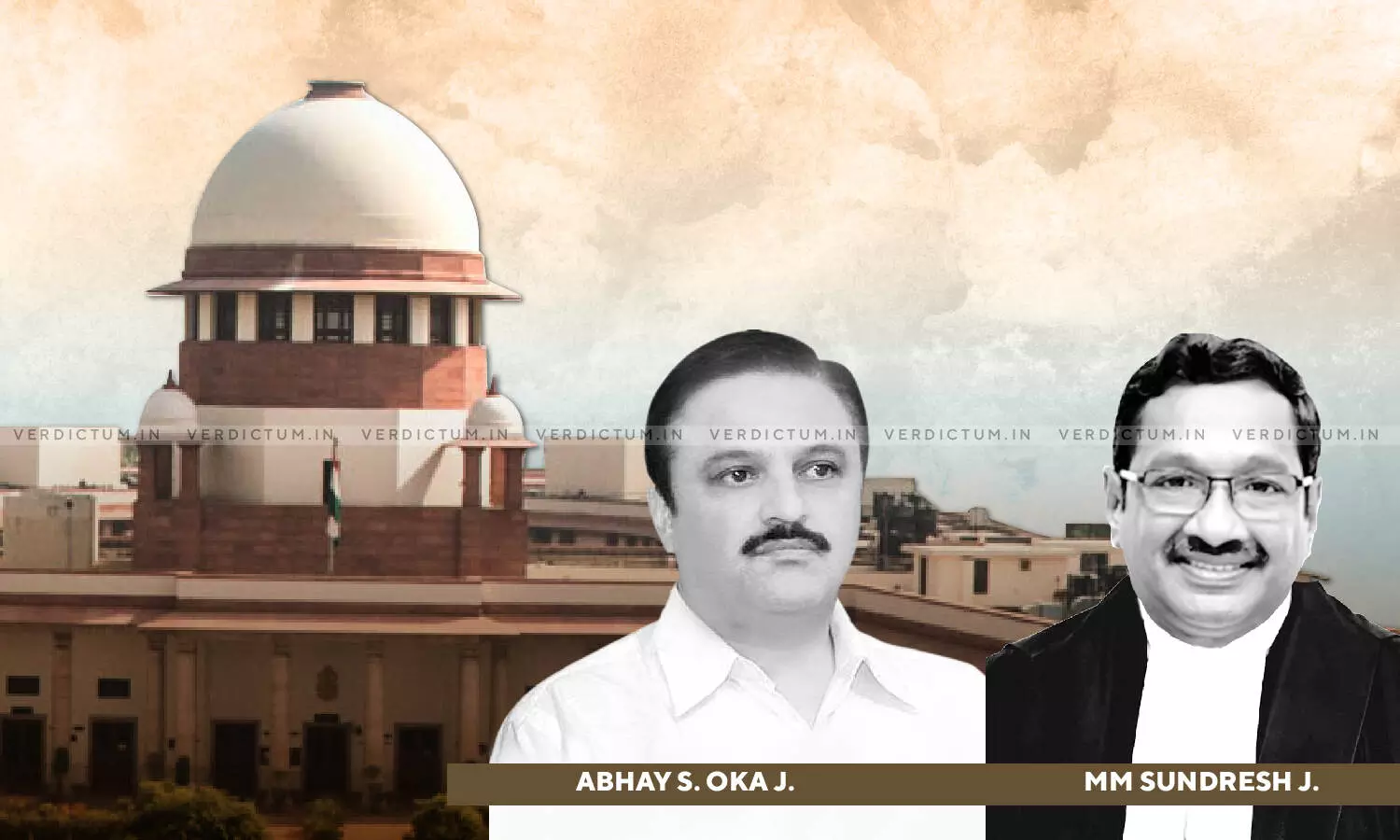
Motive Assumes Significance When Accused Is Implicated Based Upon Circumstantial Evidence: Supreme Court
 |
|The Supreme Court has recently observed that while dealing with a case of circumstantial evidence motive becomes significant.
"When we deal with a case of circumstantial evidence, as aforesaid, motive assumes significance. Though, the motive may pale into insignificance in a case involving eyewitnesses, it may not be so when an accused is implicated based upon the circumstantial evidence.", the Bench of Justice Abhay S. Oka and Justice M.M. Sundresh observed.
The facts in brief of the case were that an FIR was registered on finding a dead body. The brother of the deceased identified the body. Statements of both father and brother of the deceased did not indicate any specific suspect.
On the next day, doubts were raised by both brother and the father of the deceased pointing the finger of suspicion on the accused who happens to be a friend of the deceased. Upon securing the accused, recovery of the material in the form of firearm was made.
The trial Court disbelieved the evidence of both father and brother of the deceased.
Having found that the motive was not proved and the recovery being doubtful, the Court in the first instance deemed it appropriate to extend the benefit of doubt in favour of the appellant-accused.
The Division Bench of the Delhi High Court, despite concurring with the views expressed by the trial Court qua the last seen theory, nonetheless accepted the evidence of the brother of the deceased with respect to the motive coupled with the recoveries made. Hence the High Court rendered a conviction.
This order of the High Court was challenged before the Supreme Court.
Advocate Krishan Kumar, appearing for the appellant submitted that after having accepted the views of the trial Court as a plausible one, the conviction ought not to have been rendered.
He pointed out that motive has not been established in the manner known to law. He submitted that the manner in which recoveries were made at the first instance during the inspection of the place of occurrence and thereafter at the instance of the appellant were rightly doubted by the trial court. He argued that the suspicion created by the trial Court was not dispelled.
Aishwarya Bhati, Additional Solicitor General, appearing for the respondent-state submitted that the power of the High Court in deciding the appeal is rather wide. It was submitted that the brother of the deceased had deposed about the motive due to enmity between the deceased and the appellant-accused. It was further submitted that this along with the recoveries made formed sufficient grounds to convict the appellant.
After going through the judgment rendered by the trial Court as well as the High Court, the Court held that "…we do feel that it is a case where the High Court has not acted within the legal parameters."
The Court noted that the High Court did concur with the views of the trial Court with respect to the last seen theory.
"Having accepted the views of the trial Court holding that the last seen theory has not been proved, a conviction cannot be rendered on the basis of evidence, which was rejected qua motive, through the mouth of PW2.", the Court opined.
The Court placed reliance on the position of law dealt with in the case of Tarsem Kumar v. Delhi Administration (1994) where it was held that in a case which is based on circumstantial evidence, motive for committing the crime on the part of the accused assumes greater importance.
The Court observed that there were a lot of contradictions in the evidence rendered. The Court also noted that there were discrepancy on the mode of traveling to the place from where the recovery under Section 27 of the Act was made, along with the witnesses.
The Court further noted that the report of ballistic expert was inconclusive with respect to the firearm belonging to the appellant being used for committing the offence.
"All the aforesaid aspects have been considered threadbare by the trial Court. We do not find any perversity in it and the law presumes double presumption in favour of the accused after a due adjudication by the trial Court. We do believe that the High Court could have been slower in reversing the order of acquittal rendered by the Court of First Instance.", the Court held while setting aside the order of conviction rendered by the High Court.
Click here to read/download the Judgment